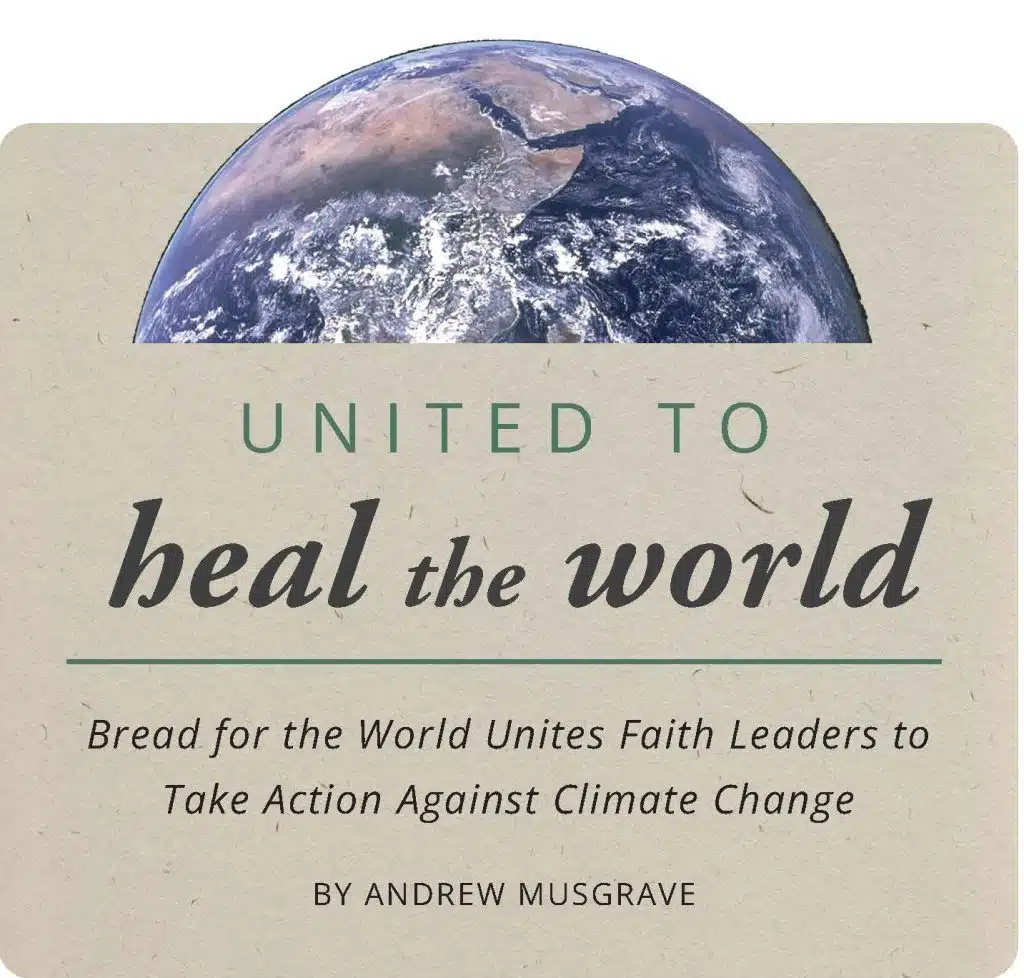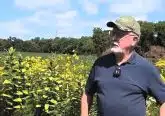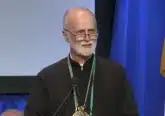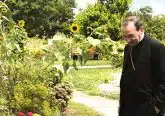United to Heal the World
 For many years the earth’s weather patterns have been shifting: stronger storms, prolonged droughts, intensifying heat waves, rising sea levels and more. Most of us in the Midwest are blessed to not be significantly affected, although we haven’t been immune—especially those involved in agriculture. Much of the world, however, has been profoundly impacted, especially in food production and distribution.
For many years the earth’s weather patterns have been shifting: stronger storms, prolonged droughts, intensifying heat waves, rising sea levels and more. Most of us in the Midwest are blessed to not be significantly affected, although we haven’t been immune—especially those involved in agriculture. Much of the world, however, has been profoundly impacted, especially in food production and distribution.
This past fall, Bread for the World, a U.S.-based nonprofit that has worked for over 50 years to end global hunger, united the voices of Christians in the U.S., Europe and Africa. The goal was to increase recognition of the climate change reality and plead for world leaders to come together to address its devastating effects on the lives of Earth’s most vulnerable people.
Through the end of summer and early fall, Christians from different corners of the world met virtually to draw on wisdom from both faith and scientific leaders in drafting a statement that recognizes our collective: 1) responsibility for much of the change, 2) lack of dedication to our faith’s commitment to charity for all and 3) choice to ignore the scientific evidence showing humanity’s impact on the severity of the change. I was blessed to be part of this conversation. Together we prayed for our repentance and committed to making changes in our lives, both collectively and as individuals.
We concluded the process by gathering for a week in Nairobi, Kenya, to finalize our statement and determine how we move beyond words to action and progress. We learned first-hand how climate change is affecting people in developing countries and how those countries are leading the charge to overcome the effects, including: 1) scientists utilizing specific trees and crops to improve soil and food production; 2) nonprofits accessing improved cooking methods to feed children in schools; 3) women empowering each other in raising and selling chickens and by acting as entrepreneurs, growers and businesswomen. Signed by faith leaders from across the globe, our statement was presented at the United Nations annual conference to address climate change (COP27, held in November in Egypt).
The question for us is this: How are we—Catholics in the Archdiocese of Cincinnati—going to be a part of this work, this movement, to address climate change and heal our world? How are we going to stand in solidarity with our sisters and brothers locally and around the globe to care for all of God’s creation and ensure that everyone is fed?
An immediately available option is to join the work of our Archdiocesan Care for Creation Task Force (CCTF). For over 30 years, the CCTF has gathered Catholics from around the archdiocese to learn, assess, pray, act and advocate. For the last five years, it recognized select parishes, schools and Catholic institutions as Laudato Si’ Communities for their demonstrated commitment to caring for creation.
Perhaps most importantly, we can join the related global movement launched by the Vatican, Laudato Si’ Action Platform (see page 35). Worldwide, Catholics are working with scientific and community advocates, national and international leaders, and people from all faiths to address the existential threat of climate change and its widespread and long-lasting effects. All that we have is part of God’s creation, and we are called to love and protect our world for the people with us now—and for all those to come.
This article appeared in the February 2023 edition of The Catholic Telegraph Magazine. For your complimentary subscription, click here.













